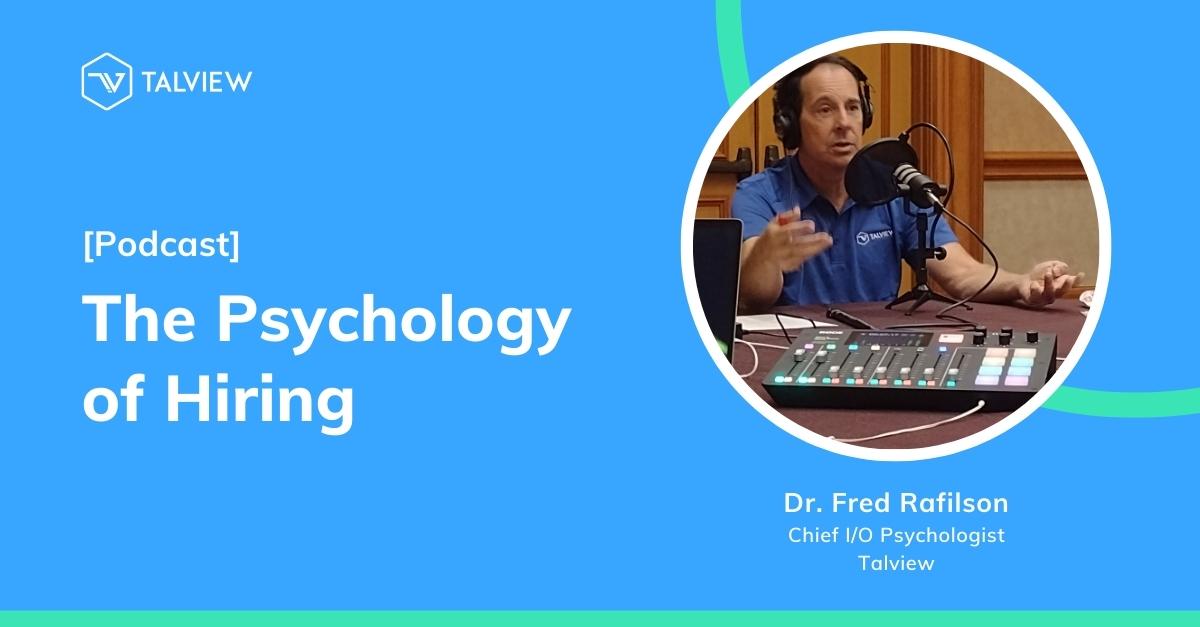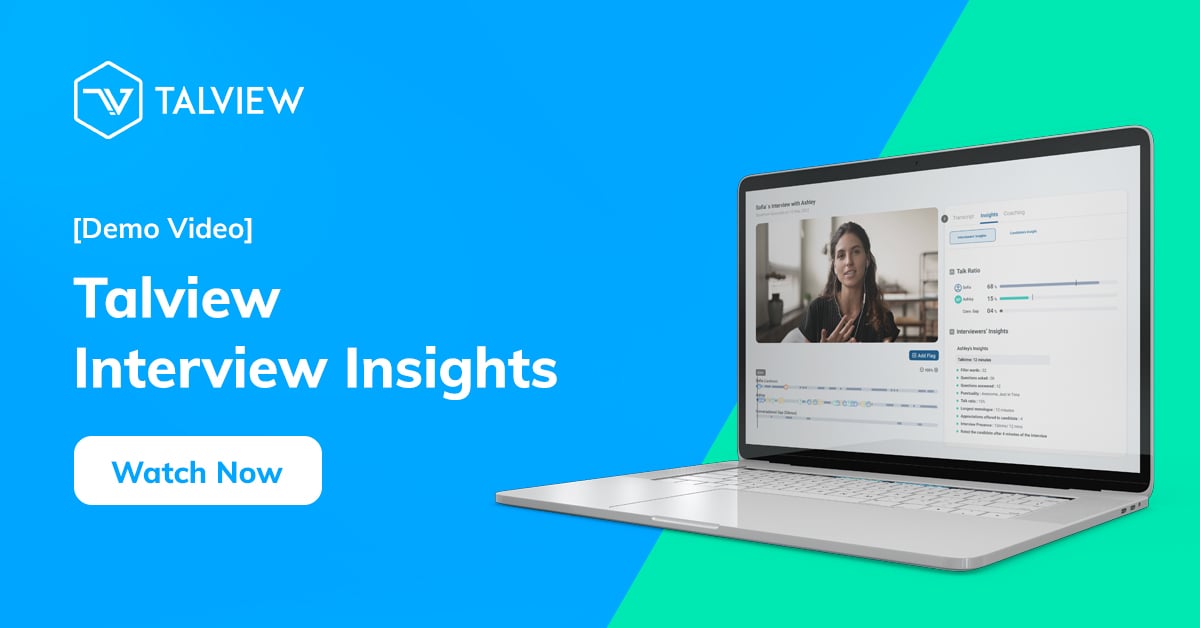During this year’s HR Tech Conference, Talview’s Dr. Fred Rafilson sat down with PCTY Talks host Shari Simpson to talk about the Psychology of Hiring and the value of candidate interviews, assessments, and AI.
Are Rigorous Pre-Employment Assessments Worth the Trouble?
As a skilled industrial/organizational psychologist with more than three decades of experience, Dr. Fred Rafilson is a recognized expert in all aspects of the assessment industry. Dr. Fred has developed and implemented assessment processes for companies, as well as federal, state, and county/municipal agencies. He has also conducted scientific research and program evaluations, providing presentations and training to executive-level private and public-sector groups. As an expert in employment litigation cases, he often works closely with agencies under DOJ consent decrees.
How can employers accurately predict which job candidates will be successful in a particular role? Dr. Fred has spent years studying this question and shared his insights with Shari on this podcast.
Listen to the Podcast
Excerpts from the Podcast
“Past performance predicts future performance. It's something that we know. And it's the reason that we look at references. There’s a reason we look at past work behavior. It's very important that we look at skills, at behavioral tendencies, attitude, and motivation.
All of the screening that we can do up front is going to tell us if a person is fit for a particular role. So, we look at a role. We look at what knowledge, skills, abilities, and other characteristics are required to be successful on that job. And then we assess the candidate, whether that be through psychometric tests or skills tests, and the most common assessment of all, the interview. All of those things are important.
Past performance predicts future performance.
The key to determining a candidate’s future performance in a role is knowing what's important for success on that specific job. I think people tend to assess for things that they think are important, but might not actually be important for the role the candidate is applying for. You know, I'm looking for culture fit, or I'm looking for someone who's like this or like that. But ‘this’ and ‘that’ might not have anything to do with the job in question.
Research shows that trying to screen to match cultural fit doesn't work. We've seen it over and over again. It just doesn't predict job success. So yeah, I’d love to have a beer with you, but are you going be a good employee? There's no correlation whatsoever.
The most common assessment of all is the interview.
There's really three things that you're looking for in quality assessments and interviewing solutions. And you want to ask vendors about these three points specifically:
- Validity
- Reliability
- Fairness
Validity
Validity means, does it indeed predict job success? I'm not going to go deep into the details, but essentially, does it work? Does it do what it's intended to do? If you get a passing score on that test, are you more likely to be successful on the job than someone who doesn't get a passing score on the test?
Reliability
How accurate is that test score? If you take that test today and you go somewhere else, and maybe a month later you take that same test, you should score approximately the same.
Fairness
At its simplest, if a test is fair or unbiased it should work the same way for everyone regardless of their gender orientation, regardless of their demographic, regardless of their location, regardless of their disability. It should function the same way for everyone.
The single biggest predictor of job success is cognitive ability.
Cognitive Ability
We know from decades of research is that the single biggest predictor of job success is cognitive ability. It's being able to learn what's necessary to perform the job, it's learning ability. The more cognitively complex the job, the more predictive cognitive ability is of success on the job.
It doesn't matter what demographic group you're in, things like cognitive ability are normally distributed. You're going to get people in every demographic group that are high ability. You're going to get people that are average, and you're going to get people that are low ability.
You need to have targeted recruiting. That's going to help those DE&I initiatives. I think recruiters should be upfront, be honest. Tell candidates if they just don't have the skills and abilities necessary for a specific job. Because that doesn't mean that the candidate is not going to be unbelievably successful doing something else.
So many people are selling solutions that they say are AI, but they're not.
Artificial Intelligence
The next revolution is AI. We can do so much more now. We can look at so many more variables. And the cool thing about AI, and people don't really realize this, it's not just automation.
So many people are selling solutions that they say are AI, but they're not AI. They're automation. Automation is great, but it's not AI.
AI has to have a feedback loop. Getting feedback on the things that we're trying to predict. Going right back into the model and changing it so that it's constantly getting better and better. That's the real benefit of AI.”




Leave a Reply